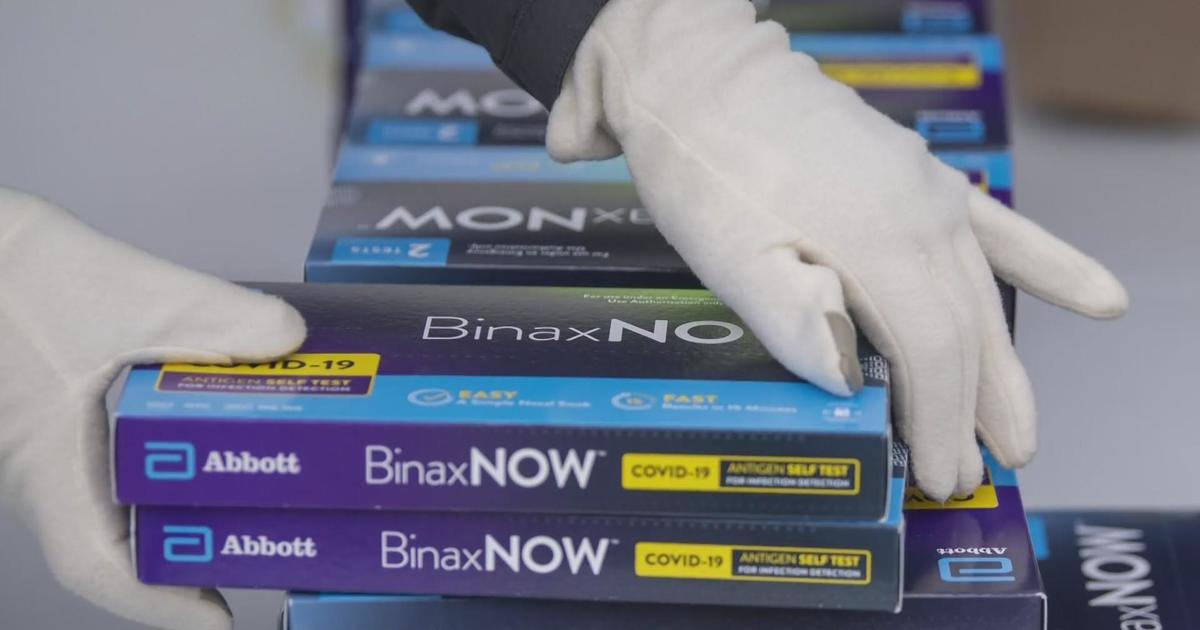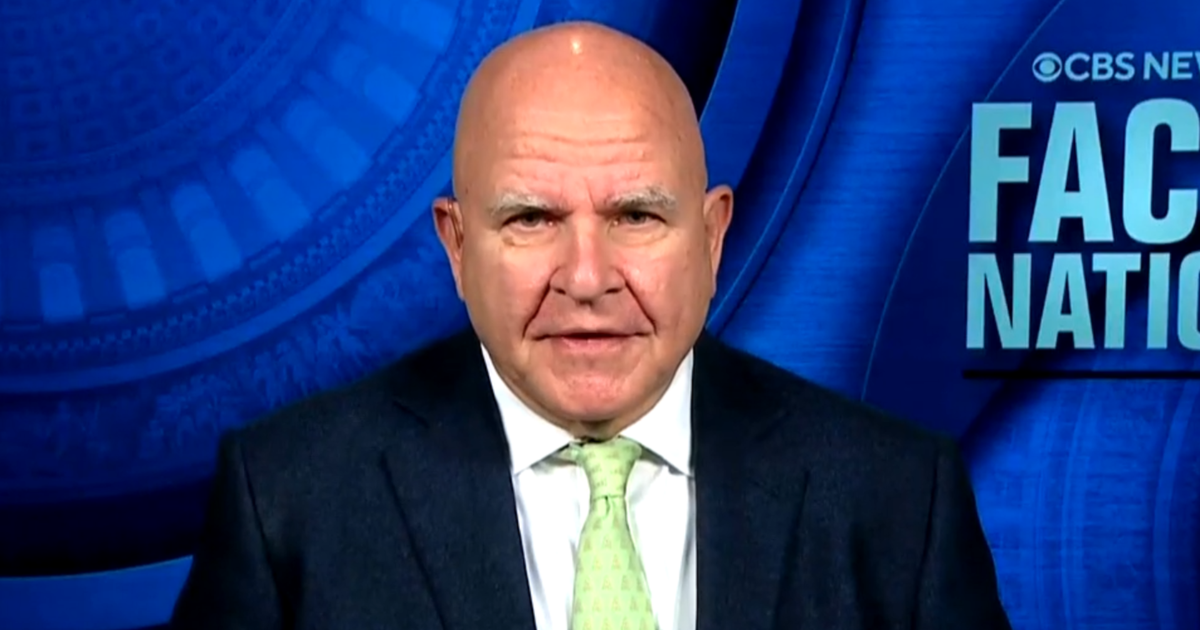CBS News
Does the “Arcturus” COVID variant cause pink eye? What to know about the new strain

Health authorities say they are now tracking a handful of new SARS-CoV-2 variants climbing in prevalence around the country, including the XBB.1.16 sublineage. That strain has been dubbed by some scientists on social media as “Arcturus,” to the frustration of some health officials.
Scientists say XBB.1.16 is relatively similar to previous strains that have recently been dominant in the United States, including the XBB.1.5 variant that drove the last wave of infections this past fall and winter, and does not seem to be leading to worse or different symptoms compared to other variants.
“We have not observed a dramatic shift in spike since that Delta to Omicron shift,” the Centers for Disease Control and Prevention’s Dr. Natalie Thornburg said at an April 27 vaccines meeting hosted by the FDA.
Thornburg said XBB.1.16 has only a handful of mutations on SARS-CoV-2’s spike protein compared with its predecessors, fewer than the more than two dozen changes seen when the original Omicron strains overtook other variants earlier in the pandemic.
XBB.1.16 could be different enough to compete with another variant called XBB.1.9, which makes up the largest share of variants on the rise at 17.5% across the U.S. But XBB.1.16 is also similar enough to its siblings that federal officials think a single vaccine recipe might be able to boost against all of them this fall.
“We have continued to see accumulating substitutions in the spike protein more incrementally over time. And that can be described as drift, which happens more slowly,” said Thornburg.
Here’s the latest about what we know about XBB.1.16.
How many people have infections from this COVID variant?
The last weekly projections by the CDC estimated that XBB.1.16 has inched up to around 9.6% of virus circulating nationwide through April 22. As of last week, there were more than 94,000 reported cases nationwide, but CDC officials have said that cases are being substantially undercounted because of at-home testing and states no longer regularly reporting data.
At the regional level, XBB.1.16 has climbed to more than 1 in 10 infections across multiple parts of the country. It makes up the largest estimated proportion of cases at 14.4% in the region spanning Arkansas, Louisiana, New Mexico, Oklahoma and Texas.
Among travelers at international airports, the CDC’s testing program has detected XBB.1.16 in around 1 in 5 positive samples pooled from arriving flights through early April.
Globally, India – which has seen a wave of new infections over recent months – has reported the largest share of XBB.1.16 sequences to global virus databases. The strain has been dominant there since February.
Is this COVID strain causing “pink eye” or other different symptoms?
Health authorities around the globe, including at the World Health Organization, have downplayed claims that XBB.1.16 is causing new or worse symptoms compared with other Omicron variant strains that have driven previous waves.
In India, where XBB.1.16 had surged, the WHO reported on April 17 that hospitalizations and other measurements of disease severity were not worse compared with other circulating variants.
Some have pointed to “pink eye” – also known as conjunctivitis – as a potential new symptom caused by XBB.1.16. But at a news conference on April 28, WHO officials described it as a “known symptom that already is part of COVID.”
Doctors have reported conjunctivitis sometimes showing up as the only symptom of COVID-19 in patients as early as 2020. It can also appear before other more typical symptoms.
“I’m not aware of any major shift in symptomatology for this variant, but we are seeing characteristics associated with increased transmission capacity,” the WHO’s Dr. Mike Ryan told reporters.
Will this COVID strain cause a new wave?
The WHO has described the variant’s growth advantage as only “moderate” compared to other strains. Since it was first reported in early January, the variant has only gradually increased around the world.
“What we’re really seeing is a kind of an estimated growth advantage, some evidence of immune escape characteristics, and therefore this variant may spread more globally and it may cause a rise in incidence,” Ryan said.
Preliminary analyses suggest “there is little difference” in the ability of antibodies from vaccination to fend off XBB.1.16 compared to earlier XBB strains, the United Kingdom reported on April 21. Relative to the earlier XBB.1.5 variant, data from animal tests described by the WHO on April 17 found “comparable” ability to evade prior infections.
While XBB.1.16 has been found across the surge of infections in India, it remains unclear what the exact role has been of this variant’s mutations in driving that increase. India saw a “strikingly similar” surge at the same time in 2021, Swiss variant trackers noted on April 27, making it difficult to figure out how much this is simply a “seasonal effect.”
For now, COVID-19 metrics are continuing to trend downward around the U.S. The pace of hospital admissions with the virus is nearing some of the record lows seen in the spring of 2021 and 2022, before both years saw renewed surges over the summer.
“It has not fallen into an exact seasonal pattern yet, but over the past few years we have seen a late summer, early fall surge, or mid-summer, early fall surge, and then another surge over the holidays,” Thornburg said.
CBS News
Former Israeli hostages released in truce 1 year ago call for action to release those still held

Former Israeli hostages who were freed from Hamas captivity during a week-long humanitarian pause in fighting exactly one year ago Sunday called for immediate action to secure a deal for the release of those still held.
The only truce in the ongoing Israel-Hamas war on Nov. 24, 2023 – fewer than two months after fighting began – led to the release of 80 Israelis held by militants in Gaza. They were freed in exchange for 240 Palestinians detained in Israeli jails.
Repeated efforts since then by mediators from Qatar, Egypt and the United States to secure another truce and hostage release have failed. Qatar early this month said it was suspending its mediation role until the warring sides show “seriousness.”
Mostafa Alkharouf/Anadolu via Getty Images
Gabriella Leimberg was kidnapped during the Oct. 7, 2023, Hamas attack and was released along with her daughter, Mia, and sister Clara.
“For 53 days, the one thing that kept me going is that we, the people of Israel, the Jewish people, sanctify life — we don’t leave anyone behind,” she said.
Leimberg added: “Everything has already been said and now action is required. We don’t have any more time.”
Around 100 hostages are still in Gaza, and at least a third are believed to be dead.
“I survived and I was fortunate to get my entire family back,” Leimberg said. “I want and demand this for all the families of the hostages.”
Hamas wants Israel to end the war and withdraw all troops from Gaza. Israel has offered only to pause its offensive.
The Palestinian death toll from the war surpassed 44,000 this week, according to Gaza’s Health Ministry, which does not distinguish between civilians and combatants in its count.
Maya Alleruzzo / AP
Danielle Aloni, who was kidnapped with her five-year-old daughter, Emelia, and freed after 49 days, spoke at the ceremony of the “increasing danger” those still being held face every day.
She said those still in captivity “suffer physical, sexual, and psychological abuse, their identity and dignity crushed anew each day”.
“It took the Israeli government about two months to secure a deal for me and 80 other Israeli hostages. Why is it taking over a year to reach another deal to free them from this hell?” asked Aloni, whose brother-in-law, David Cunio, and his brother, Ariel Cunio, are still being held.
She emphasized that, even though she and the other hostages gained their freedom a year ago, “we haven’t really left the tunnels,” — referring to Hamas’ underground tunnels where many of the hostages were held.
“The feeling of suffocation, the terrible humidity, the stench — these sensations still envelop us,” Aloni said.
“If people could truly understand what it means to be held in subhuman conditions in tunnels, surrounded by terrorists for 54 days — there’s no way they would allow hostages to remain there for 415 days!” said Raz Ben Ami, who was released in the deal a year ago.
Her husband, Ohad, is still among those being held.
Ben Ami called for a ceasefire to “bring back all the hostages as quickly as possible”.
CBS News
Couple charged for allegedly stealing $1 million from Lululemon in convoluted retail theft scheme

A couple from Connecticut faces charges for allegedly taking part in an intricate retail theft operation targeting the apparel company Lululemon that may have amounted to $1 million worth of stolen items, according to a criminal complaint.
The couple, Jadion Anthony Richards, 44, and Akwele Nickeisha Lawes-Richards, 45, were arrested Nov. 14 in Woodbury, Minnesota, a suburb of Minneapolis-St. Paul. Richards and Lawes-Richards have been charged with one count each of organized retail theft, which is a felony, the Ramsey County Attorney’s Office said. They are from Danbury, Connecticut.
The alleged operation impacted Lululemon stores in multiple states, including Minnesota.
“Because of the outstanding work of the Roseville Police investigators — including their new Retail Crime Unit — as well as other law enforcement agencies, these individuals accused of this massive retail theft operation have been caught,” a spokesperson for the attorney’s office said in a statement on Nov. 18. “We will do everything in our power to hold these defendants accountable and continue to work with our law enforcement partners and retail merchants to put a stop to retail theft in our community.”
Both Richards and Lawes-Richards have posted bond as of Sunday and agreed to the terms of a court-ordered conditional release, according to the county attorney. For Richards, the court had set bail at $100,000 with conditional release, including weekly check-ins, or $600,000 with unconditional release. For Lawes-Richards, bail was set at $30,000 with conditional release and weekly check-ins or $200,000 with unconditional release. They are scheduled to appear again in court Dec. 16.
Prosecutors had asked for $1 million bond to be placed on each half of the couple, the attorney’s office said.
Richards and Lawes-Richards are accused by authorities of orchestrating a convoluted retail theft scheme that dates back to at least September. Their joint arrests came one day after the couple allegedly set off store alarms while trying to leave a Lululemon in Roseville, Minnesota, and an organized retail crime investigator, identified in charging documents by the initials R.P., recognized them.
The couple were allowed to leave the Roseville store. But the investigator later told an officer who responded to the incident that Richards and Lawes-Richards were seasoned shoplifters, who apparently stole close to $5,000 worth of Lululemon items just that day and were potentially “responsible for hundreds of thousands of dollars in loss to the store across the country,” according to the complaint. That number was eventually estimated by an investigator for the brand to be even higher, with the criminal complaint placing it at as much as $1 million.
Richards and Lawes-Richards allegedly involved other individuals in their shoplifting pursuits, but none were identified by name in the complaint. Authorities said they were able to successfully pull off the thefts by distracting store employees and later committing fraudulent returns with the stolen items at different Lululemon stores.
“Between October 29, 2024 and October 30, 2024, RP documented eight theft incidents in Colorado involving Richards and Lawes-Richards and an unidentified woman,” authorities wrote in the complaint, describing an example of how the operation would allegedly unfold.
“The group worked together using specific organized retail crime tactics such as blocking and distraction of associates to commit large thefts,” the complaint said. “They selected coats and jackets and held them up as if they were looking at them in a manner that blocked the view of staff and other guests while they selected and concealed items. They removed security sensors using a tool of some sort at multiple stores.”
CBS News contacted Lululemon for comment but did not receive an immediate reply.
CBS News
Former Trump national security adviser says next couple months are “really critical” for Ukraine

Washington — Lt. Gen. H.R. McMaster, a former national security adviser to Donald Trump, said Sunday that the upcoming months will be “really critical” in determining the “next phase” of the war in Ukraine as the president-elect is expected to work to force a negotiated settlement when he enters office.
McMaster, a CBS News contributor, said on “Face the Nation with Margaret Brennan” that Russia and Ukraine are both incentivized to make “as many gains on the battlefield as they can before the new Trump administration comes in” as the two countries seek leverage in negotiations.
With an eye toward strengthening Ukraine’s standing before President-elect Donald Trump returns to office in the new year, the Biden administration agreed in recent days to provide anti-personnel land mines for use, while lifting restrictions on Ukraine’s use of U.S.-made longer range missiles to strike within Russian territory. The moves come as Ukraine marked more than 1,000 days since Russia’s invasion in February 2022.
Meanwhile, many of Trump’s key selection for top posts in his administration — Rep. Mike Waltz for national security adviser and Sens. Marco Rubio for secretary of state and JD Vance for Vice President — haven’t been supportive of providing continued assistance to Ukraine, or have advocated for a negotiated end to the war.
CBS News
McMaster said the dynamic is “a real problem” and delivers a “psychological blow to the Ukrainians.”
“Ukrainians are struggling to generate the manpower that they need and to sustain their defensive efforts, and it’s important that they get the weapons they need and the training that they need, but also they have to have the confidence that they can prevail,” he said. “And any sort of messages that we might reduce our aid are quite damaging to them from a moral perspective.”
McMaster said he’s hopeful that Trump’s picks, and the president-elect himself, will “begin to see the quite obvious connections between the war in Ukraine and this axis of aggressors that are doing everything they can to tear down the existing international order.” He cited the North Korean soldiers fighting on European soil in the first major war in Europe since World War II, the efforts China is taking to “sustain Russia’s war-making machine,” and the drones and missiles Iran has provided as part of the broader picture.
“So I think what’s happened is so many people have taken such a myopic view of Ukraine, and they’ve misunderstood Putin’s intentions and how consequential the war is to our interests across the world,” McMaster said.
On Trump’s selections for top national security and defense posts, McMaster stressed the importance of the Senate’s advice and consent role in making sure “the best people are in those positions.”
McMaster outlined that based on his experience, Trump listens to advice and learns from those around him. And he argued that the nominees for director of national intelligence and defense secretary should be asked key questions like how they will “reconcile peace through strength,” and what they think “motivates, drives and constrains” Russian President Vladimir Putin.
Trump has tapped former Rep. Tulsi Gabbard to be director of national intelligence, who has been criticized for her views on Russia and other U.S. adversaries. McMaster said Sunday that Gabbard has a “fundamental misunderstanding” about what motivates Putin.
More broadly, McMaster said he “can’t understand” the Republicans who “tend to parrot Vladimir Putin’s talking points,” saying “they’ve got to disabuse themselves of this strange affection for Vladimir Putin.”
Meanwhile, when asked about Trump’s recent selection of Sebastian Gorka as senior director for counterterrorism and deputy assistant to the president, McMaster said he doesn’t think Gorka is a good person to advise the president-elect on national security. But he noted that “the president, others who are working with him, will probably determine that pretty quickly.”





GIPHY App Key not set. Please check settings